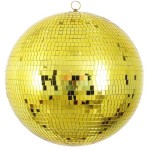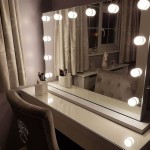What Kind of Image Is Formed by a Convex Mirror?
Convex mirrors, also known as diverging mirrors, are spherical mirrors with their reflective surface curved outwards. They are commonly found in applications where a wide field of view is required, such as in rearview mirrors in vehicles, security cameras, and at blind corners. Unlike concave mirrors, which can form both real and virtual images depending on the object's position, convex mirrors always produce virtual images.
Virtual Images: A Closer Look
A virtual image is an image that cannot be projected onto a screen. It is formed by the apparent intersection of reflected or refracted rays of light. In convex mirrors, the reflected rays diverge, meaning they spread out. Since the diverging rays do not actually converge, the image appears to form behind the mirror, where the rays would intersect if they were extended backward. This creates the illusion of an image that appears to be located behind the mirror's surface.
Characteristics of Images Formed by Convex Mirrors
The images formed by convex mirrors exhibit several key characteristics:
Always Virtual:
As mentioned earlier, convex mirrors always form virtual images. This means that the image cannot be projected onto a screen.Always Upright:
The image formed by a convex mirror is always upright, meaning it is not inverted.Always Smaller than the Object:
Convex mirrors always produce images that are smaller than the object. This is because the reflected rays diverge, making the image appear smaller.Located Behind the Mirror:
The virtual image formed by a convex mirror is always located behind the mirror's surface. This is because the diverging rays appear to originate from a point behind the mirror.
Applications of Convex Mirrors
Convex mirrors have numerous applications in various fields due to their unique image-forming properties. Here are some notable examples:
Rearview Mirrors in Vehicles:
Convex mirrors are used as passenger-side rearview mirrors in vehicles to provide a wider field of view, reducing blind spots and improving safety.Security Cameras:
Convex mirrors are often used in security cameras to monitor a wider area. They allow for a broader view of a room or an entrance, enhancing security and surveillance capabilities.Blind Corners:
Convex mirrors are placed at blind corners on roads and in parking garages to improve visibility and prevent accidents. These mirrors allow drivers to see around corners and avoid collisions.Telescopes:
Convex mirrors are used in the construction of Cassegrain telescopes, a type of reflecting telescope that offers a compact design with a long focal length.Reflectors:
Convex mirrors can act as reflectors, bouncing light back in multiple directions. This property is used in applications like traffic signs and street lighting.
In conclusion, convex mirrors consistently produce virtual images that are upright, smaller than the object, and located behind the mirror. These unique properties make convex mirrors suitable for a wide range of applications, contributing to safety, security, and scientific advancements.

Concave Mirrors And Convex Image Formation Ray Diagram
Is It Possible For A Convex Mirror To Produce Real Image When The Object Virtual Quora

What Is The Nature Of Image Formed In A Convex Mirror

Image Formation By Convex Mirror In Hindi And English Dual Audio

Convex Mirror Image Formation Conditions Ray Diagram Uses

Image Formation By Convex Mirrors

Image Formation By Convex Mirrors

The Image Formed By A Convex Mirror Is Always Erect Virtual Large B Diminished C Upright D None Of Above

Convex Mirror Image Formation Conditions Ray Diagram Uses

Show That All Images Formed By A Convex Mirror Is Virtual Physics Ray Optics And Optical Instruments 9856423 Meritnation Com








